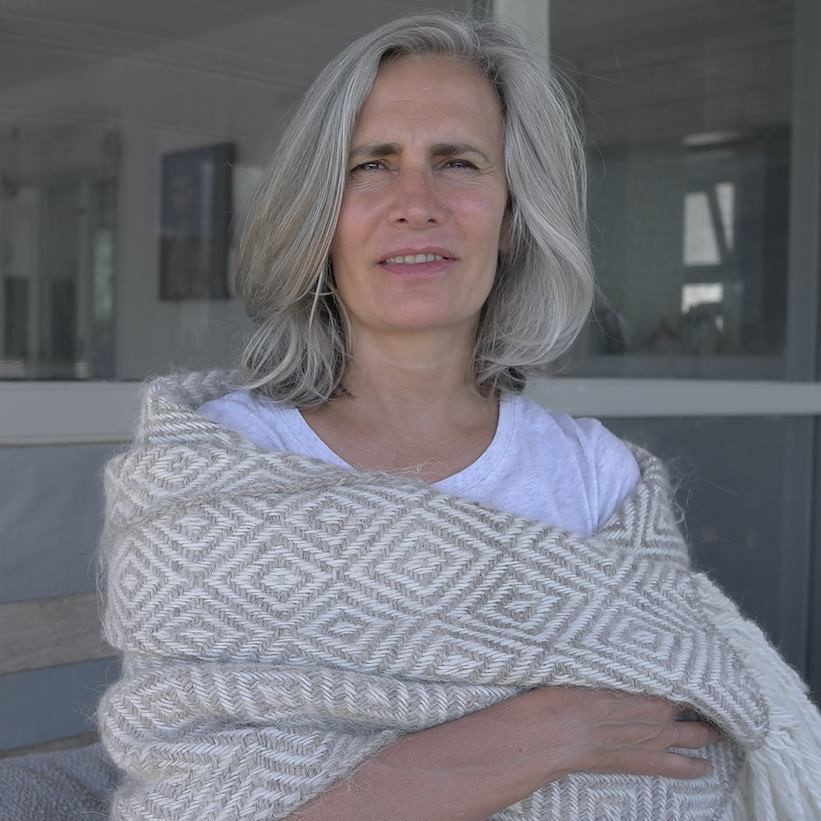
Adriana Marina
Tech Entrepreneur
Argentina
NGo Hecho por nosotros & B corp Animaná
I am a naturalist, and a change maker.
In a Transition scenario as the one we are in, traditional hierarchies begin to break down to give way to new systems. Capacity building thus is less about transfer of knowledge but more about learning together and cocreating new patterns and structures that can serve the emergence of a new system of influence.
We believe in building capacity through transdisciplinary dialogue and co-creation bringing together the grassroots with global networks to explore and learn together. These lasts 14 years made my journey through animaná and Hecho por nosotros for a SYSTEMIC CHANGE IN FASHION, leather and textiles.
animaná (B Corp) and Hecho Por Nosotros (NGO Ecosoc Status at United Nations) collaborate for a systemic change
animaná: a social enterprise, B Corp, which represents an alternative to the current fashion industry where we incorporate circularity and inclusivity throughout our value chain. We work very closely with communities and natural fibers of Patagonia and the Andes, combining ancestral techniques with contemporary design to create sustainable luxury products.
We work on topics such as using techno as tools for integrate value chains and save the gap of separation we are living through capacity building, ed tech, techno tools, direct financing, traceability & transparency using blockchain, capacity building, education, food, water and waste, storytelling in hands of the grassroots, MSMe, artisans and
We created an University on line of systemic change, based on REGENERATIVE MODELS.
echo por Nosotros is a Systemic change in action ( made by us) is a space collective self organised consciousness approach in order to encourage the sensitivity, synchronicity and synthesis of collective co- creation.
https://www.linkedin.com/pulse/co-creative-leadership-sustainability-development-models-yang-%25E6%259D%25A8%25E7%2584%25B1%25E6%2596%2587/?trackingId=
It is Key to open spaces of SYSTEMIC CHANGE as Our current education is based on empirical and positivist epistemologies that designed to create separation between being or sense of self and the world. This Newtonian educational framework obliterates who we are from what we do, our deep sense of values is disconnected from the actions in the world. Then what happens? We have a world now that full of human materialistic marvels with looming human existential crisis one after another : climate change, COVID-19 pandemic, leadership and more yet to come We need to re-educate ourselves, the current and next generation of leaders and people based on 21st century ontological philosophy, science and practice of collective consciousness.
In a Transition scenario as the one we are in, traditional hierarchies begin to break down to give way to new systems. Capacity building thus is less about transfer of knowledge but more about learning together and cocreating new patterns and structures that can serve the emergence of a new system of influence.
We believe in building capacity through transdisciplinary dialogue and co-creation bringing together the grassroots with global networks to explore and learn together. These lasts 14 years made my journey through animaná and Hecho por nosotros for a SYSTEMIC CHANGE IN FASHION, leather and textiles.
animaná (B Corp) and Hecho Por Nosotros (NGO Ecosoc Status at United Nations) collaborate for a systemic change
animaná: a social enterprise, B Corp, which represents an alternative to the current fashion industry where we incorporate circularity and inclusivity throughout our value chain. We work very closely with communities and natural fibers of Patagonia and the Andes, combining ancestral techniques with contemporary design to create sustainable luxury products.
We work on topics such as using techno as tools for integrate value chains and save the gap of separation we are living through capacity building, ed tech, techno tools, direct financing, traceability & transparency using blockchain, capacity building, education, food, water and waste, storytelling in hands of the grassroots, MSMe, artisans and
We created an University on line of systemic change, based on REGENERATIVE MODELS.
echo por Nosotros is a Systemic change in action ( made by us) is a space collective self organised consciousness approach in order to encourage the sensitivity, synchronicity and synthesis of collective co- creation.
https://www.linkedin.com/pulse/co-creative-leadership-sustainability-development-models-yang-%25E6%259D%25A8%25E7%2584%25B1%25E6%2596%2587/?trackingId=
It is Key to open spaces of SYSTEMIC CHANGE as Our current education is based on empirical and positivist epistemologies that designed to create separation between being or sense of self and the world. This Newtonian educational framework obliterates who we are from what we do, our deep sense of values is disconnected from the actions in the world. Then what happens? We have a world now that full of human materialistic marvels with looming human existential crisis one after another : climate change, COVID-19 pandemic, leadership and more yet to come We need to re-educate ourselves, the current and next generation of leaders and people based on 21st century ontological philosophy, science and practice of collective consciousness.